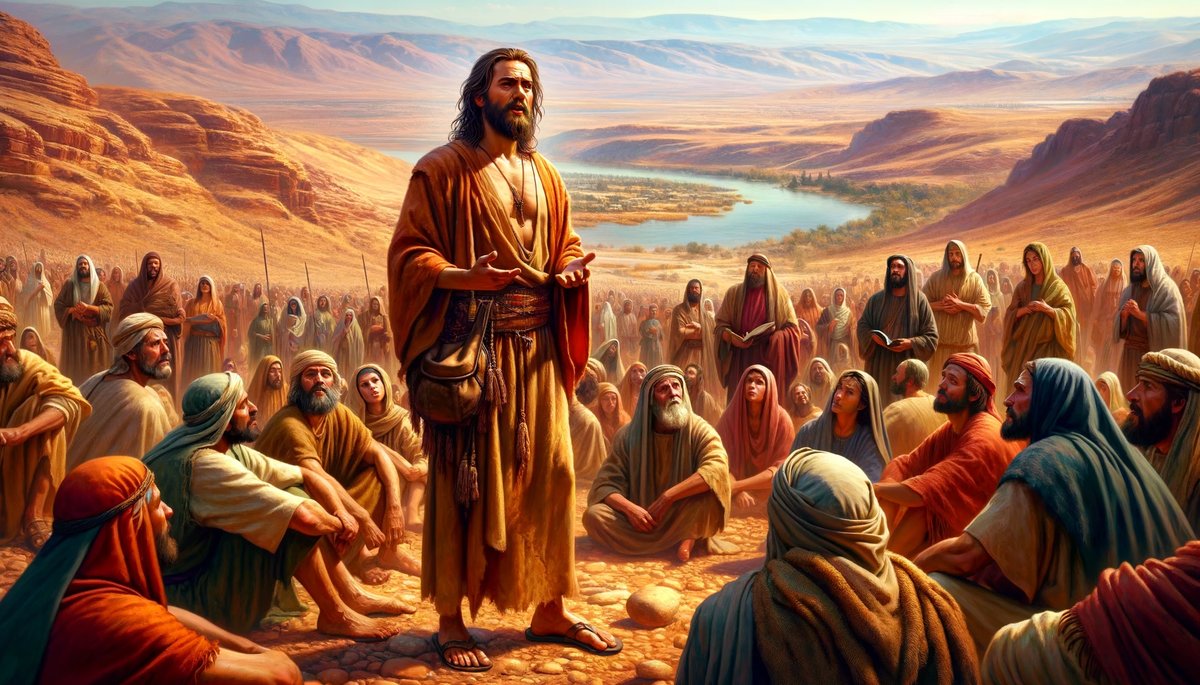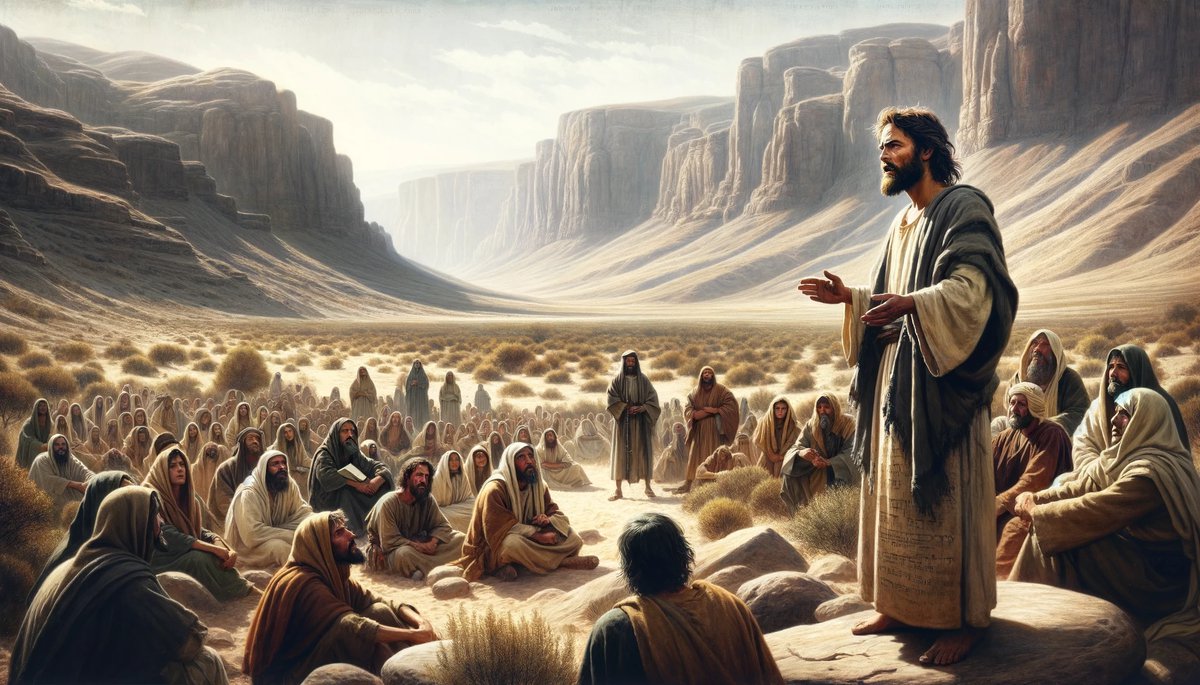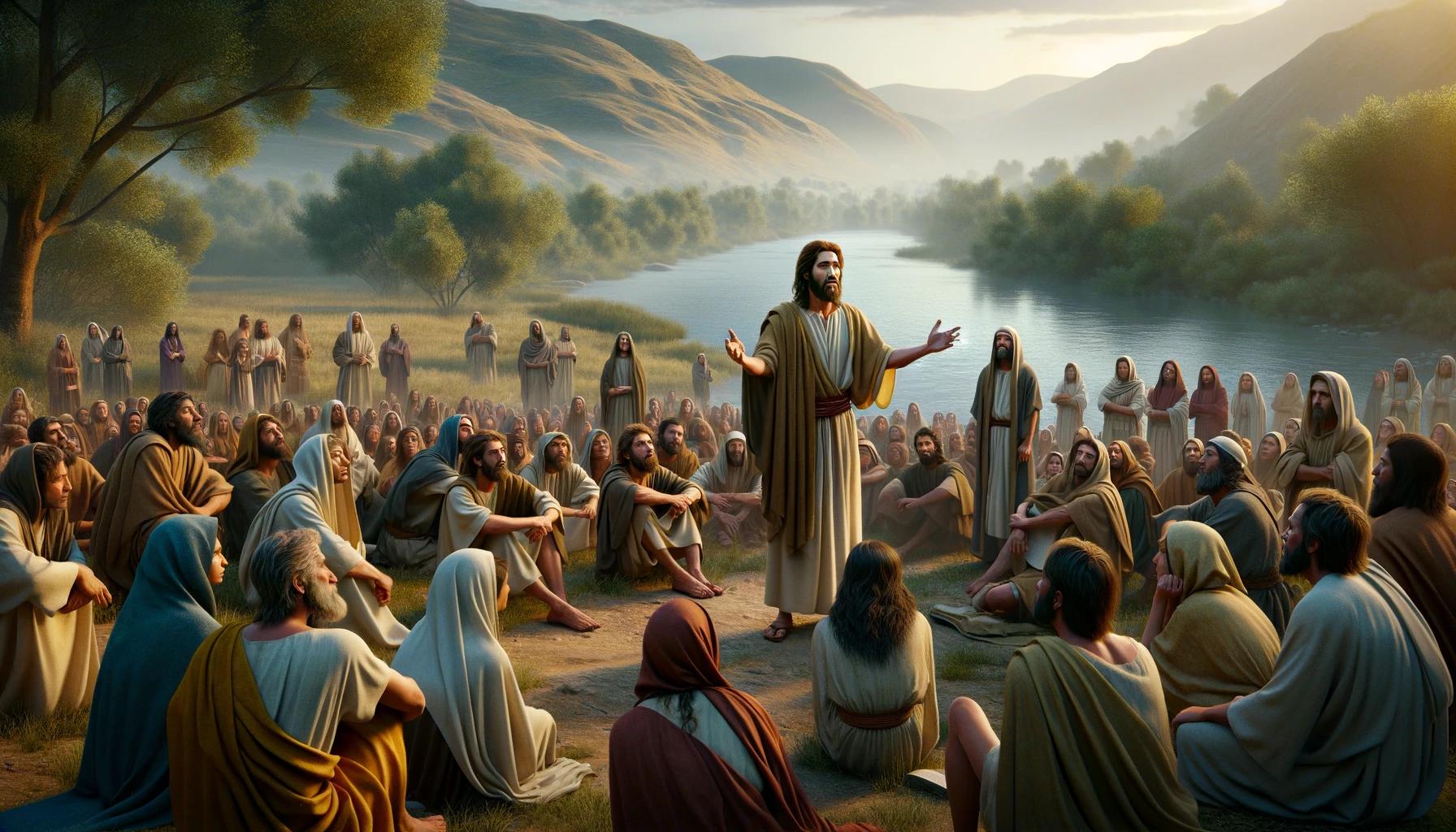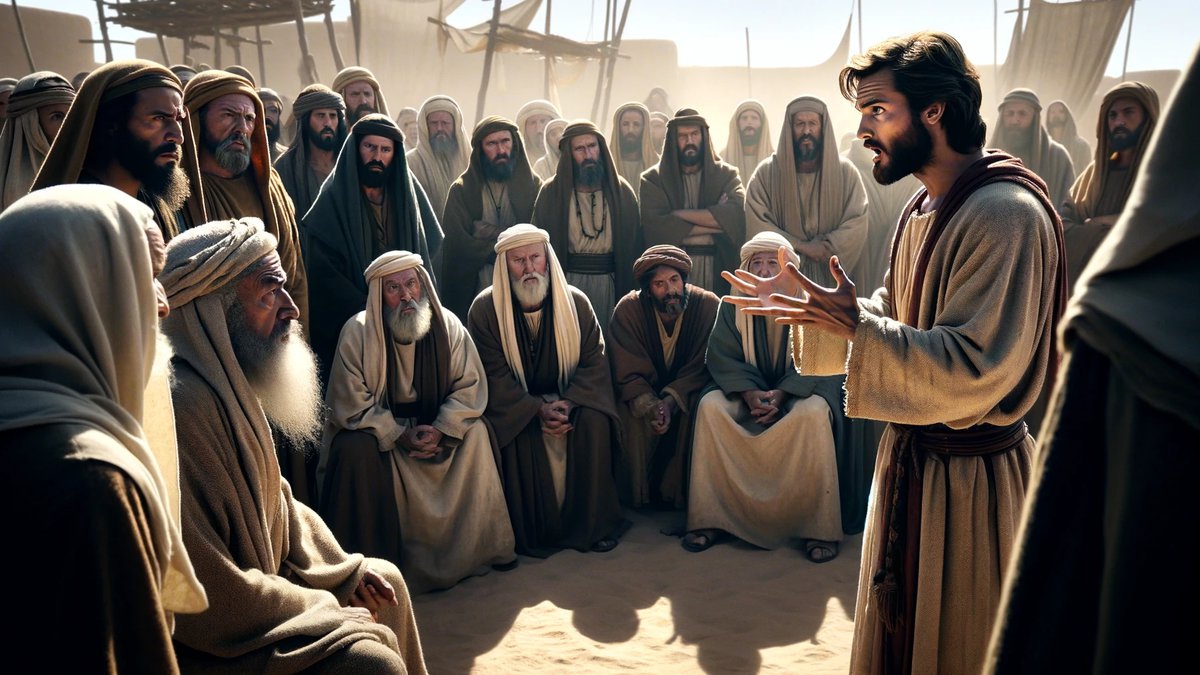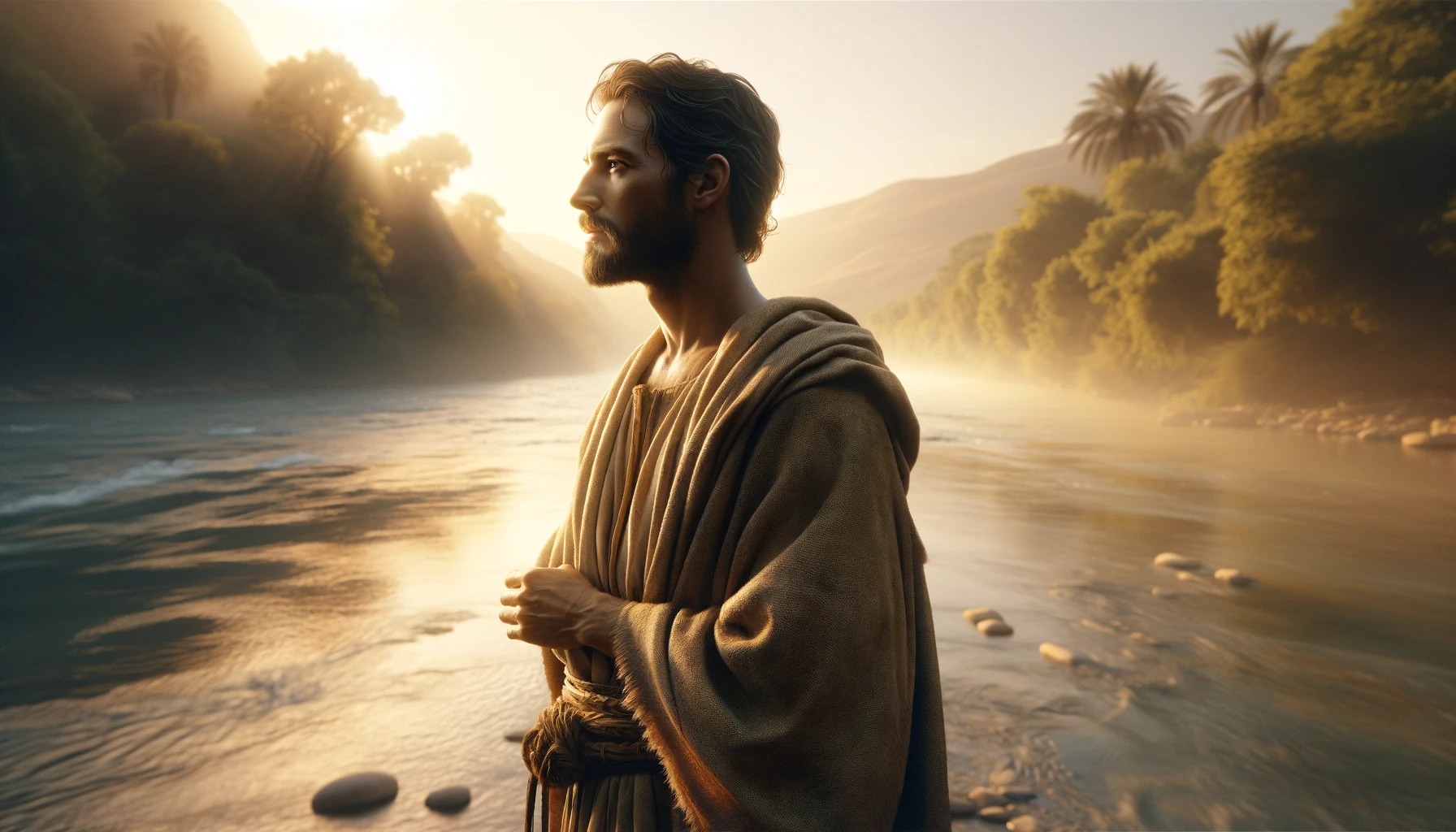Home>Theology and Spirituality>What Did John The Baptist Do In The Wilderness
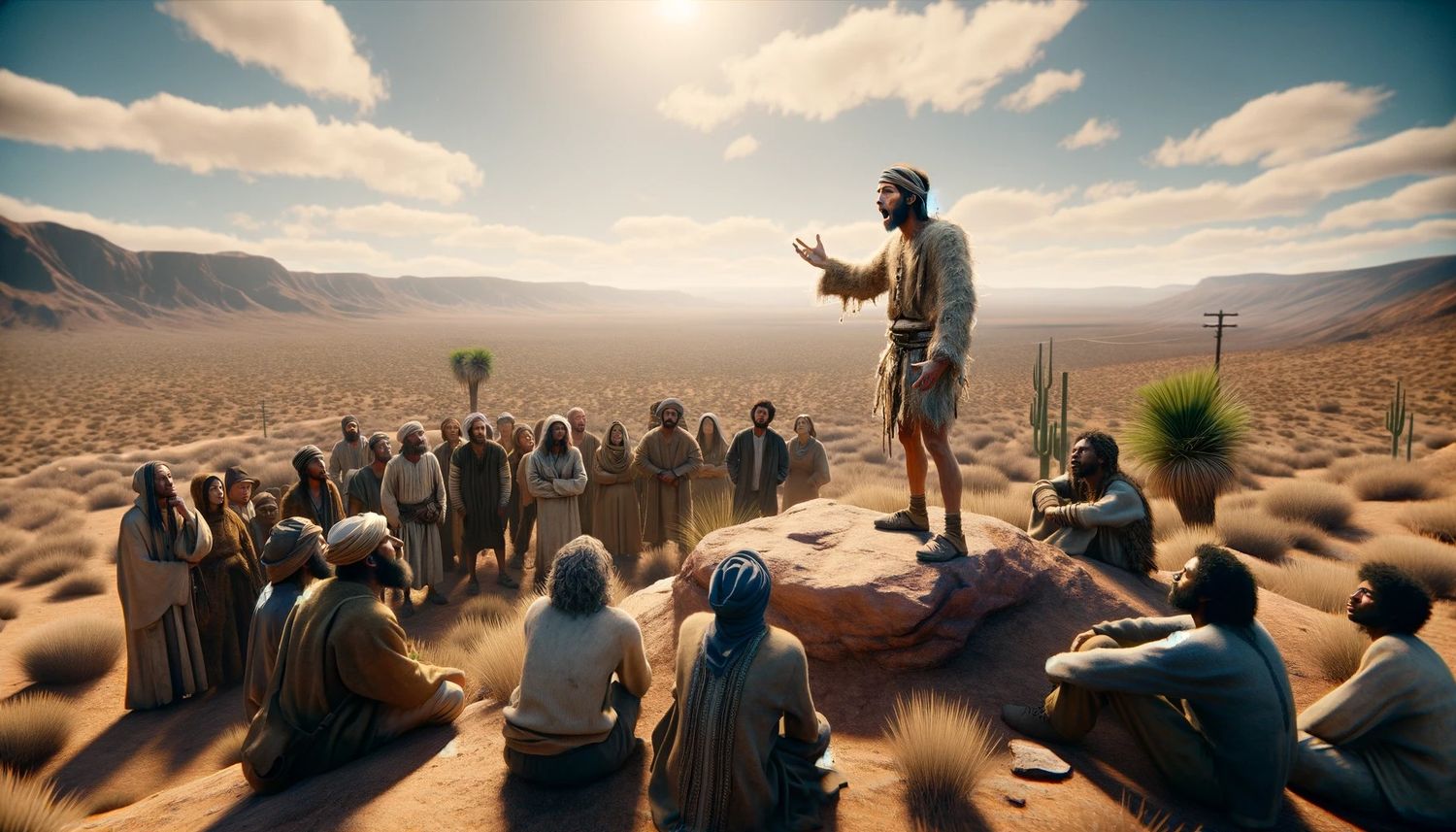

Theology and Spirituality
What Did John The Baptist Do In The Wilderness
Published: February 22, 2024
Jason DeRose, Managing Editor at Christian.net, uses his expertise in religion and journalism to deepen understanding of faith's societal impacts. His editorial leadership, coupled with a strong academic background, enriches the platform’s diverse content, earning him recognition in both journalism and religious circles.
Discover the significance of John the Baptist's time in the wilderness and its impact on theology and spirituality. Explore the spiritual journey of John the Baptist in the wilderness.
(Many of the links in this article redirect to a specific reviewed product. Your purchase of these products through affiliate links helps to generate commission for Christian.net, at no extra cost. Learn more)
Table of Contents
Introduction
John the Baptist is a significant figure in Christian history, known for his pivotal role in preparing the way for the ministry of Jesus Christ. His life and actions, particularly his time in the wilderness, hold profound spiritual and historical significance. Exploring John the Baptist's activities in the wilderness provides valuable insights into his character, mission, and impact on the religious landscape of his time.
In this article, we will delve into the compelling narrative of John the Baptist's life, focusing on his remarkable journey in the wilderness. By examining his background, ministry, message, and influence on Jesus, we can gain a deeper understanding of the profound impact he had on the spiritual landscape of his era. Join us as we embark on a captivating exploration of John the Baptist's extraordinary life and his transformative role in preparing the way for the Messiah.
John the Baptist's Background
John the Baptist's background is shrouded in spiritual significance and historical intrigue. Born to elderly parents, Zechariah and Elizabeth, John's miraculous conception was foretold by an angel, signaling his extraordinary destiny. His birth was a testament to divine intervention, as his mother, Elizabeth, was previously unable to conceive. John's upbringing was marked by a deep sense of purpose, as he was destined to become the herald of the Messiah.
From a young age, John demonstrated a profound connection to spirituality and a calling to prepare the way for the coming of the Lord. His ascetic lifestyle and unwavering devotion to God set him apart, even in his formative years. As he matured, John's spiritual fervor intensified, drawing him to the wilderness, where he would embark on a transformative journey of self-discovery and divine revelation.
The wilderness served as a sacred space for John, providing solitude and communion with the divine. It was in this rugged and untamed terrain that John's character was forged, and his prophetic mission took root. Embracing a life of simplicity and detachment from worldly distractions, John honed his spiritual insight and prepared himself to fulfill his divine calling.
John's background, characterized by divine prophecy, spiritual devotion, and solitude in the wilderness, laid the foundation for his extraordinary ministry. His upbringing and formative years uniquely positioned him to embrace his role as the herald of the Messiah, ultimately shaping the course of his impactful and transformative journey in the wilderness.
This section provides a glimpse into the profound spiritual and historical context that shaped John the Baptist's early years, setting the stage for his remarkable ministry and the pivotal role he would play in preparing the world for the arrival of Jesus Christ.
John's Ministry in the Wilderness
In the wilderness, John the Baptist embarked on a profound and transformative ministry that would reverberate throughout history. His decision to retreat to the wilderness was not an act of isolation, but rather a deliberate choice to immerse himself in a sacred space where he could commune with the divine and fulfill his prophetic calling.
Amidst the rugged terrain and untamed wilderness, John's ministry took shape as he fervently preached a message of repentance and spiritual renewal. His impassioned sermons echoed through the wilderness, drawing crowds from far and wide who were captivated by his compelling words and unwavering conviction. John's ministry was characterized by a fervent call to turn away from sin and embrace a life of righteousness, preparing the hearts of the people for the imminent arrival of the Messiah.
The wilderness served as a symbolic backdrop for John's ministry, reflecting the untamed and unyielding nature of his message. It was a place of spiritual reckoning, where individuals were confronted with the urgency of repentance and the promise of redemption. John's uncompromising stance and prophetic fervor resonated deeply with those who sought spiritual truth and a path to reconciliation with the divine.
Furthermore, John's ministry in the wilderness was marked by the ritual of baptism, a profound symbol of spiritual purification and rebirth. Drawing from the rich tradition of Jewish ritual immersion, John administered baptism as a tangible expression of repentance and a symbolic cleansing of the soul. The act of baptism in the wilderness became a transformative experience for those who sought spiritual renewal, symbolizing a profound turning point in their lives as they embraced a renewed commitment to righteousness and spiritual awakening.
As John's ministry gained momentum, his presence in the wilderness became synonymous with a beacon of hope and spiritual revival. His unwavering dedication to his prophetic mission and his profound impact on the hearts and minds of the people solidified his legacy as a transformative figure in the religious landscape of his time.
In essence, John's ministry in the wilderness was a testament to his unwavering commitment to prepare the hearts of the people for the imminent arrival of the Messiah. His impassioned sermons, the ritual of baptism, and his unyielding call to repentance reverberated through the wilderness, leaving an indelible mark on the spiritual landscape of his era. It was in the wilderness that John's ministry flourished, paving the way for the transformative impact he would have on the course of religious history.
John's Message and Baptism
John the Baptist's message and baptism held profound significance, serving as transformative symbols of spiritual renewal and preparation for the arrival of the Messiah. In the wilderness, John fervently preached a message of repentance, urging the people to turn away from sin and embrace a life of righteousness. His compelling sermons resonated with a sense of urgency, compelling individuals to confront their spiritual condition and seek reconciliation with the divine.
Central to John's ministry was the ritual of baptism, a symbolic act of immersion in water that signified spiritual purification and rebirth. Drawing from the rich tradition of Jewish ritual immersion, John administered baptism as a tangible expression of repentance and a symbolic cleansing of the soul. The act of baptism in the wilderness became a transformative experience for those who sought spiritual renewal, symbolizing a profound turning point in their lives as they embraced a renewed commitment to righteousness and spiritual awakening.
The significance of John's baptism extended beyond a mere ritual; it represented a profound spiritual awakening and a tangible expression of one's desire for inner transformation. The act of immersion in water symbolized a cleansing of past transgressions and a commitment to embark on a new path of spiritual renewal. Through baptism, individuals publicly declared their intention to embrace a life of righteousness and prepare their hearts for the imminent arrival of the Messiah.
Furthermore, John's baptism was a powerful symbol of spiritual unity and communal renewal. As individuals gathered in the wilderness to partake in this transformative ritual, a sense of collective repentance and spiritual solidarity permeated the atmosphere. The act of baptism became a unifying force, binding the community together in their shared pursuit of spiritual awakening and preparation for the arrival of the long-awaited Messiah.
In essence, John's message of repentance and the ritual of baptism in the wilderness served as profound catalysts for spiritual transformation and communal renewal. Through his impassioned sermons and the symbolic act of baptism, John ignited a spiritual awakening that reverberated through the hearts and minds of the people, preparing them for the imminent arrival of Jesus Christ. The wilderness became a sacred space where individuals embraced a renewed commitment to righteousness, symbolized by the transformative act of baptism, as they eagerly anticipated the fulfillment of ancient prophecies and the dawn of a new era of spiritual redemption.
John's Impact on Jesus
John the Baptist's impact on Jesus was profound and multifaceted, shaping the trajectory of Jesus' ministry and the spiritual landscape of the time. Their intertwined destinies unfolded in a remarkable manner, underscoring the pivotal role John played in heralding the arrival of the Messiah.
First and foremost, John's ministry in the wilderness served as a powerful precursor to Jesus' own public ministry. By preparing the hearts of the people through his impassioned sermons and the ritual of baptism, John created a fertile ground for Jesus to commence his transformative mission. The spiritual awakening and anticipation that permeated the wilderness as a result of John's ministry set the stage for the profound impact that Jesus would have on the lives of the people.
Furthermore, John's recognition of Jesus as the long-awaited Messiah was a pivotal moment that solidified their interconnected roles in the divine narrative. John's proclamation of Jesus as the "Lamb of God" and the one who would "take away the sin of the world" affirmed Jesus' divine purpose and mission. This pivotal declaration not only validated Jesus' identity but also positioned him as the fulfillment of ancient prophecies, thereby amplifying the significance of John's role as the herald of the Messiah.
Moreover, Jesus' own baptism by John in the Jordan River marked a transformative moment in both their lives. As Jesus emerged from the waters, the heavens opened, and the Spirit descended like a dove, affirming Jesus' divine sonship. This profound event not only signified the commencement of Jesus' public ministry but also underscored the spiritual connection between John and Jesus, solidifying their intertwined destinies in the grand tapestry of divine providence.
In essence, John the Baptist's impact on Jesus reverberated through the annals of history, shaping the course of Jesus' ministry and the spiritual awakening that swept through the wilderness. John's unwavering dedication to preparing the hearts of the people and his pivotal role in recognizing and baptizing Jesus underscored the profound influence he had on the life and mission of the Messiah. Their interconnected destinies, woven together in the wilderness, set the stage for the transformative impact that Jesus would have on the world, ultimately fulfilling the ancient prophecies and ushering in a new era of spiritual redemption.
Conclusion
In conclusion, John the Baptist's extraordinary journey in the wilderness stands as a testament to his unwavering commitment to prepare the hearts of the people for the imminent arrival of the Messiah. His profound impact on the spiritual landscape of his time reverberates through the annals of history, underscoring the transformative power of his ministry and message.
The wilderness served as a sacred backdrop for John's prophetic mission, providing a space for spiritual reckoning and communal renewal. His impassioned sermons, fervent call to repentance, and the transformative ritual of baptism created a sense of urgency and anticipation, igniting a spiritual awakening that transcended the rugged terrain and resonated deeply with the hearts and minds of the people.
Furthermore, John's recognition of Jesus as the long-awaited Messiah and his pivotal role in baptizing Jesus in the Jordan River solidified their interconnected destinies, shaping the trajectory of Jesus' ministry and affirming the fulfillment of ancient prophecies. Their intertwined roles in the divine narrative underscore the profound influence John had on the life and mission of the Messiah, setting the stage for the dawn of a new era of spiritual redemption.
John the Baptist's ministry in the wilderness exemplifies the transformative power of spiritual devotion, prophetic insight, and unwavering commitment to divine purpose. His legacy endures as a timeless symbol of spiritual renewal and preparation, inspiring generations to embrace a life of righteousness and eagerly anticipate the fulfillment of divine promises.
As we reflect on John the Baptist's remarkable journey in the wilderness, we are reminded of the enduring impact of his prophetic mission and the profound significance of his role in preparing the world for the arrival of Jesus Christ. His legacy continues to resonate as a beacon of hope and spiritual awakening, inviting us to embrace the transformative power of repentance, renewal, and unwavering faith in the fulfillment of divine promises.
In essence, John the Baptist's transformative journey in the wilderness serves as a timeless testament to the enduring power of spiritual devotion, prophetic insight, and unwavering commitment to divine purpose. His legacy continues to inspire and resonate as a beacon of hope and spiritual awakening, inviting us to embrace the transformative power of repentance, renewal, and unwavering faith in the fulfillment of divine promises.

